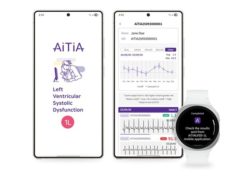
Microsoft started the Azure4Research (A4R) program in 2013. The Azure for Research program offers cloud computing resource grants to researchers and scientists who continue to explore emerging challenges, basic research, and new applications related to the ubiquitous devices and networking that comprise the Internet of Things (IoT). Six times a year, Microsoft invites researchers and educators at top research universities to apply for this program. Yesterday, Microsoft announced the latest round of A4R winners. Find the winners list below.
- The Rolls-Royce University Technology Centre (UTC) at Sheffield University will explore the collective use of wireless sensor nodes and cloud-based predictive analytics technologies to monitor the performance of machinery typically found in an industrial setting. Researchers will gain a better understanding of the design and performance limitations of wireless sensing and inspire engineering students about the potential of IoT.
- The Tennessee Technological University (TTU) College of Engineering will continue its IoT Platform for engineering, education and research program (IoT PEER), a testbed for education, exploration and research of IoT, based upon Arduino, Raspberry PI and Zigbee technologies. Ongoing projects are focused on the areas of fisheries revitalization and management of 3D printers and projectors in the classroom.
- The University of Liverpool School of Environmental Science is conducting a feasibility study for developing a software service in the cloud that would streamline the development of cross-platform apps for generating climate data. Once completed, researchers will have developed a cloud-based service that consumes various data sources and connects with a variety of apps; a functional model for using apps, algorithms, sensors and open data services to disseminate research data; and a functional prototype demonstrating the value of the framework.
- The Center for Green Buildings and Cities (CGBC) at Harvard University Graduate School of Design is focused on developing new processes, systems, and products that will transform the building industry. As part of the upcoming CGBC HouseZero project, an existing three-story home will be renovated and equipped with a range of technologies, including building automation, data visualization, augmented reality, embedded sensors, machine learning and data analysis.
- Queen’s University is researching how to simplify the development and effective use of IoT systems. For this project, researchers will assess the needs of IoT developers and customers, and develop a prototype service that: identifies a customer’s needs, provides a list of relevant services upon which the solution to their need is based, and automatically configures the individual apps that make up the solution.
- The Department of Electrical and Computer Engineering at Carnegie Mellon University is researching how data visualization and algorithms could lead to improved management of the generation and distribution of electricity across power grids. Part of the research will involve the use of high performance computing resources to simulate of a power grid containing as many as 100,000 buses.
Learn more about this program -.

![[Interview] The Technologies Bringing Cloud-Level](https://loginby.com/itnews/wp-content/uploads/2025/11/1763822314_Interview-The-Technologies-Bringing-Cloud-Level-238x178.jpg)



![[Infographic] Manage Commercial Displays With Ease Across](https://loginby.com/itnews/wp-content/uploads/2026/02/1770220527_Infographic-Manage-Commercial-Displays-With-Ease-Across-100x75.jpg)
